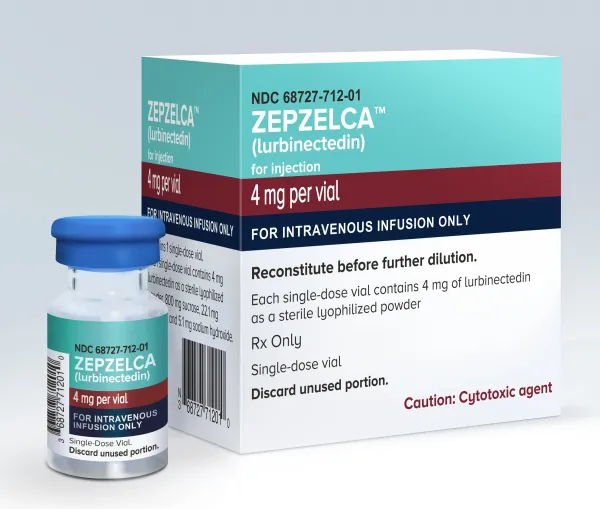Zepzelca Disease Interactions
There are 2 disease interactions with Zepzelca (lurbinectedin).
Lurbinectedin (applies to Zepzelca) liver dysfunction
Moderate Potential Hazard, Moderate plausibility. Applicable conditions: Liver Disease
The use of lurbinectedin can cause hepatotoxicity. Assess liver function tests, before administering lurbinectedin, periodically during treatment, and as clinically indicated. No dose adjustment is recommended for patients with mild hepatic impairment. Caution is recommended when using this agent in patients with moderate or severe hepatic impairment as the pharmacokinetics of lurbinectedin have not been studied in these patients. Withhold, reduce the dose, or permanently discontinue lurbinectedin based on severity.
Lurbinectedin (applies to Zepzelca) myelosuppression
Moderate Potential Hazard, Moderate plausibility. Applicable conditions: Bone Marrow Depression/Low Blood Counts
The use of lurbinectedin can cause myelosuppression. Assess blood counts, including neutrophil count and platelet count before each therapy and administer lurbinectedin only to patients with baseline neutrophil count of at least 1,500 cells/mm3 and platelet count of at least 100,000/mm3. For neutrophil count less than 500 cells/mm3 or any value less than lower limit of normal, the use of G-CSF is recommended. Withhold, reduce the dose, or permanently discontinue lurbinectedin based on severity.
Switch to professional interaction data
Zepzelca drug interactions
There are 447 drug interactions with Zepzelca (lurbinectedin).
Zepzelca alcohol/food interactions
There is 1 alcohol/food interaction with Zepzelca (lurbinectedin).
More about Zepzelca (lurbinectedin)
- Zepzelca consumer information
- Check interactions
- Compare alternatives
- Pricing & coupons
- Drug images
- Side effects
- Dosage information
- During pregnancy
- FDA approval history
- Drug class: alkylating agents
- En español
Related treatment guides
Drug Interaction Classification
| Highly clinically significant. Avoid combinations; the risk of the interaction outweighs the benefit. | |
| Moderately clinically significant. Usually avoid combinations; use it only under special circumstances. | |
| Minimally clinically significant. Minimize risk; assess risk and consider an alternative drug, take steps to circumvent the interaction risk and/or institute a monitoring plan. | |
| No interaction information available. |
See also:
Further information
Always consult your healthcare provider to ensure the information displayed on this page applies to your personal circumstances.


